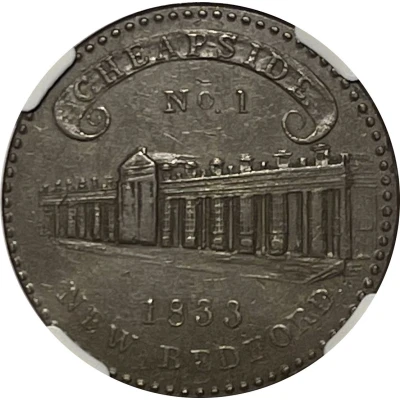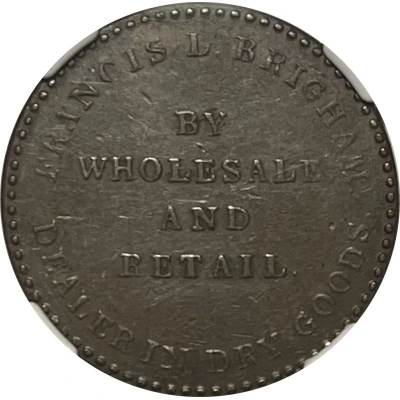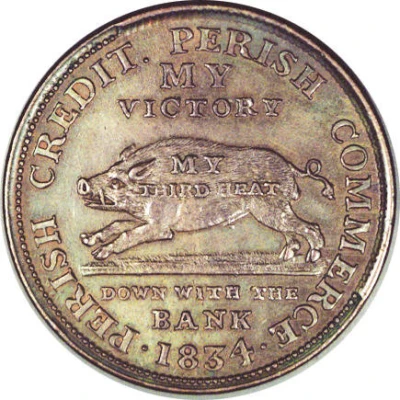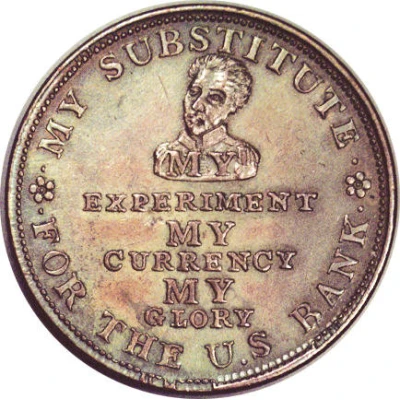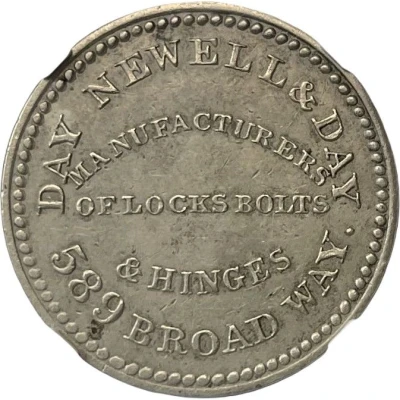
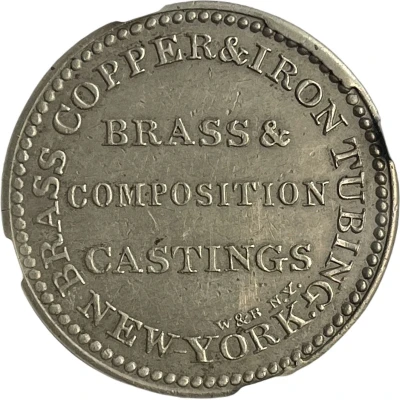

© tpal1961 (CC BY)
Hard Times Merchant Token - Day Newell & Day, Locks New York, New York ND
| Nickel silver | - | 26.5 mm |
| Location | United States |
|---|---|
| Type | Medals › Advertising medallions |
| Years | 1833-1834 |
| Composition | Nickel silver |
| Diameter | 26.5 mm |
| Shape | Round |
| Technique | Milled |
| Orientation | Coin alignment ↑↓ |
| Demonetized | Yes |
| Updated | 2024-11-13 |
| Numista | N#378000 |
|---|---|
| Rarity index | 100% |
Reverse
Legend - City and more of their products, Diemaker
Script: Latin
Lettering:
BRASS COPPER & IRON TUBING NEW-YORK.
BRASS & COMPOSITION CASTINGS
W & B N.Y.
Engravers: Wright, Bale
Edge
Plain
Comment
The Day brothers emigrated from Nova Scotia to New York in the early 1800s. They became U.S. citizens in 1833. Robert Newell worked with William Day at 589 Broadway from 1834 to 1838 per Longworth’s New York City Directory. Jacob G. Day and Samuel S. Day were also at that address for some of those years, so it is not clear who the second Day brother was when their token was issued. Day, Newell & Day was followed by Day & Newell which was at that address until 1854.In 1837 Jacob G. Day was listed at 321 West Street. An ad appeared in The New York Courier and Enquirer that year for a “steam rolling mill of DAY & RODGERS…for gold, silver, brass, copper, and silver composition (German silver) at 321 West Street… Orders left at the mill, or at Day, Newell & Day’s lockfactory, 589 Broadway, or at Dr. Feuchtwanger’s store, 377 Broadway, will be promptly attended”. This business alliance suggests that Feuchtwanger’s composition was used for HT-248.
Robert Newell (1803-1854) patented several “burglar proof” locks starting in 1838. Their fame became such that Day & Newell locks were installed to protect the Crown Jewels. Day & Newell became "special patrons and protectors...to her Majesty Victoria Regina I."
American Phrenological Journal, Volume 13, Pg. 99, Jan. 1, 1851
HT-248 is R-7 of German silver with 4-12 known. HT-247 and HT-247A are the same design in copper and brass. Wright & Bale, the engravers, were partners until 1833 and the building at 589 Broadway was completed in 1833 which suggests the tokens were made in 1833 or 1834.
